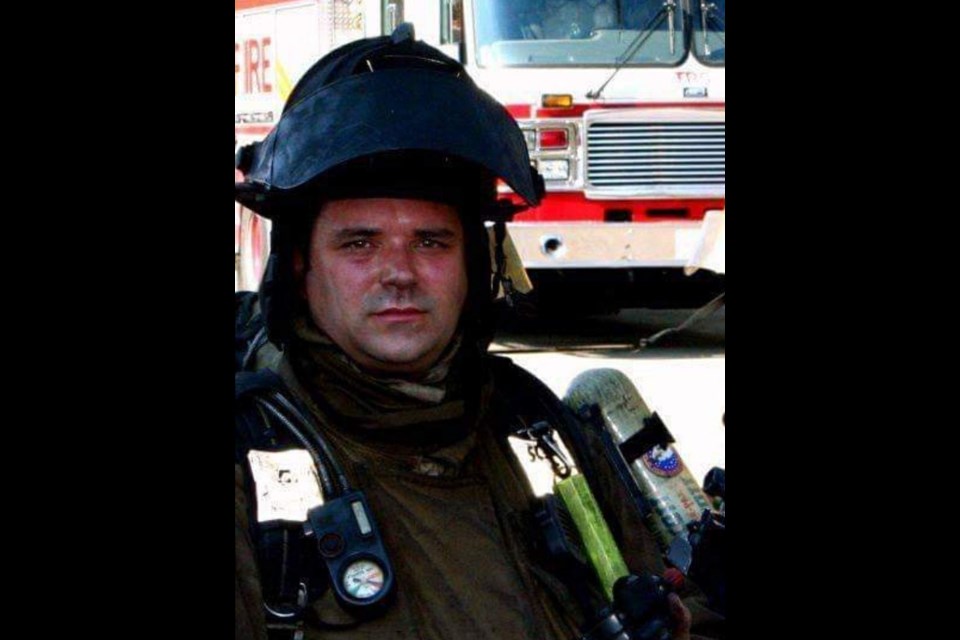The provincial government’s decision to close the Ontario Fire College in Gravenhurst was a shock to local firefighters, who say they were not consulted on the decision.
“We were not at all consulted with, or even given a heads up, so it came as quite a shock to all of us,” says Orillia fire chief Brent Thomas.
The government’s new plan, announced in a Jan. 13 press release from the Ministry of the Solicitor General, will divert training from the college to 20 smaller regional training centres across the province, where both online and in-person training will be offered.
"Moving to a blend of online and on-site training offered through regional training centres allows us to provide responsive, high quality training to fire services across the province," said Jon Pegg, Ontario's Fire Marshal, in the news release.
OPSEU Local 317 president Chris McConnell, who represents the workers of the fire college, says the closure is disappointing.
“Although the college wasn’t big enough to handle all the training needs it always gave fire departments access to affordable, high quality training in a great facility,” says McConnell.
The Ontario Fire College has been in operation since 1949, employing 30 full-time staff members and housing up to 100 firefighters at a time.
Norm Miller, the MPP for Parry Sound-Muskoka, says a decline in training numbers was seen over the years. Despite the province’s combined total of 31,500 full-time, part-time and volunteer firefighters, only 2,000 a year registered for courses at the college of which there was a 30 per cent cancellation rate, according to Miller.
Fire training was accessible through the college or regional training centres until the pandemic hit last March, at which point the college was closed and only the regional facilities were kept open.
A training backlog caused by the pandemic will only get worse with the permanent closure according to McConnell.
McConnell says he would have expected the government to invest in the facility, if anything. The college was rented out for purposes other than fire training, he says, and could have provided education to more firefighters if it staffed more people according to McConnell.
“It’s been starved over the years,” says McConnell.
Thomas is calling on the province to work with those in the fire service to fine-tune the college to make it more efficient.
“Leave the doors open and let’s roll up our sleeves and see how we can make the system work,” says Thomas. “To just close it doesn’t give us options.”
However, the government says the overhaul will save municipalities money while modernizing training; McConnell takes issue with these claims.
The fire college provides training to anyone in the fire service - full-time, part time or volunteer firefighters - at a provincially subsidized rate of $65 per course, including room and board.
Regional training facilities operate on a cost-recovery basis according to McConnell, meaning the cost required for the facility to provide training is what the trainee’s fire department has to pay. Most courses now cost around $350 according to Thomas. McConnell says some run as high as $1,200.
As most fire departments have already set their 2021 training budgets, Thomas says the jump in training costs “leaves (them) scrambling.”
Thomas instructed at the college and attended many courses at the Gravenhurst facility earlier in his career. He says some of the greatest learning is done outside the classroom, when trainees can swap tricks of the trade.
“There’s a huge benefit to being able to do the training and courses with people from other departments. You can ask questions and share different techniques that you’ve tried that haven’t worked well, or things that you’ve tried that have worked well and learn from each other. That’s certainly something that will be a loss,” says Thomas.
McConnell worries the online format will impair the skill level of those being trained, too, citing how fire service instructor certificates can now be completed virtually without trainees having to instruct in front of a class first.
When Thomas ran the recruiting program for Hamilton’s fire department, some trainees had taken classes online and later completed the practical training in a one-week block, while others had learned the theory and put it into practice with hands-on learning directly after the lesson. The difference in skill level between the two camps was quite visible, Thomas said.
While the new training methods won’t change how Thomas hires recruits, he says it may make it harder for recruits to get the training they need to apply, ultimately shrinking the applicant pool.
As a resident of Bracebridge, McConnell also worries about the closure’s impact on the community which is largely dependent on seasonal industries.
“I see these types of losses as a real blow to these small regional economies,” says McConnel.
Despite the planned closure, many Ontario townships aren’t giving up on the college just yet. Parry Sound, Seguin, Magnetawan, Augusta, Baldwin and Terrace Bay townships have all voted in favour of lobbying the government to reverse their decision according to McConnell, while a number of others have similar motions on their upcoming agendas.
The Green Party of Ontario has also called on the Ford government to keep the college open.
McConnell calls these movements “fantastic,” though maintains only cautious optimism as he is unsure if the province will ultimately respond to the municipalities’ and fire services’ wishes.
According to Miller, the decision to close the facility is “quite firm.” Miller says his focus is potential uses of the college’s facilities in the future, such as training personal support workers or paramedics.
“I’m sure there’s going to be a very positive use made of the property and the town of Gravenhurst is very much involved in making sure their concerns are heard,” says Miller.
Abby Hughes, a lifelong Orillia resident and Orillia Secondary School graduate, is a second-year Ryerson University journalism student interning with OrilliaMatters.
